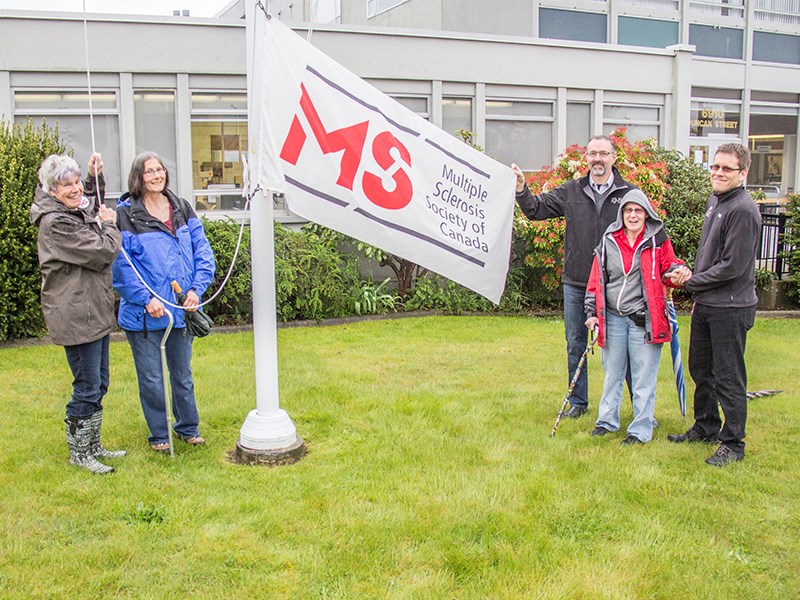Canada has the highest global rate of multiple sclerosis (MS), a chronic disease that attacks the central nervous system. In BC, 12,000 people are afflicted.
May is MS awareness month across the country.
BC and Yukon Division of MS Society of Canada does not know how many people in Powell River have MS; that data is not collected by the community. However, the organization’s coastal region chapter director Heather Armstrong estimates 20 to 25 people in the area suffer from the illness. “MS hits people in the prime of their lives, from 15 to 40 years old,” said Armstrong. “If they have a very progressive and primary diagnosis of MS, many people have to give up their jobs.”
Many people with MS have to live on employment insurance disability. Monthly payments to persons on disability assistance are less than $910.
Lina Vallee, a 35-year-old Powell River native who suffers from progressive MS, considers herself fortunate, she said. Her mother does the cooking and cleaning.
“I’m not going hungry and I never have,” said Vallee. “There are other people not as fortune as me. They have to survive on less than $1,000 a month.”
Vallee said being unable to work, which is what fulfilled her before she developed MS symptoms in 2005, is what she misses most. By 2009 she had completely stopped working.
“In a perfect world, a lot of people would like to continue to be employed,” said Vallee. “I hate not working. I loved to work and I worked all of the time.”
Vallee said she wants employers to understand that the prognosis varies from person to person. Many can continue to lead productive lives and are ready, willing and able to work.
“Most people don’t have to stop working at all,” she said. “They may be diminished a little bit and can’t do long days five or six days a week. Full-time employment is not always possible because you’re on and off. You don’t know how you’re going to feel tomorrow or even in the afternoon. I understand you can’t have someone calling in sick 50 per cent of the time.”
Vallee said she never feels 100 per cent and only leaves the house on occasion.
“If you were to look at me, I look okay, but you’re not going to see me on any of my bad days,” said Vallee. “I don’t leave the house a lot. When I do, it’s not for very long. I’m not very capable.”
Vallee spends her days on the computer and volunteering for Poverty Law Advocate Program once a week. She also has a dog and keeps as busy as she can but is limited when it comes to anything physical.
“I can’t walk very well, so I need two crutch-canes all of the time, or a wheelchair,” she said. “My thought process isn’t very good and my memory is shot. My cognitive isn’t very good at all.”
Armstrong’s mother lives in a fully assisted care home, is unable to communicate and has cognitive MS with related dementia.
“She can’t speak,” said Armstrong. “Three or four months ago she was still walking and she woke up one morning, tried to get out of bed and just collapsed. She’s lost the use of her legs and is now completely wheelchair-bound. It’s tough when I visit her; she’s not recognizing me much anymore.”
In 2006, Armstrong was diagnosed with MS.
“It was scary and unusual,” she said. “I had a one-in-40 chance of getting it because my mother has it.”



